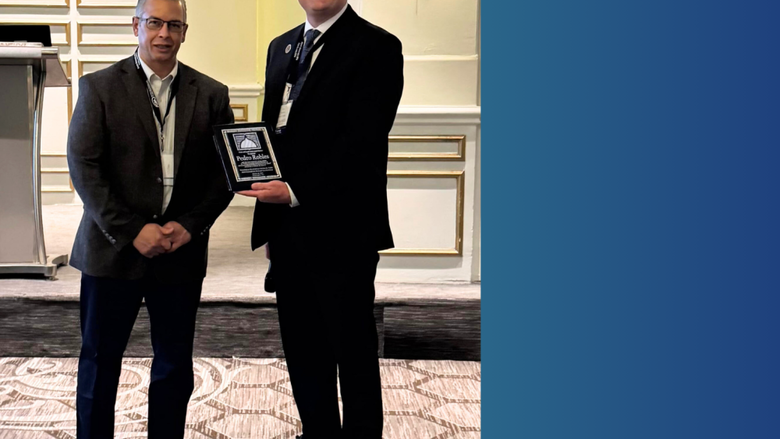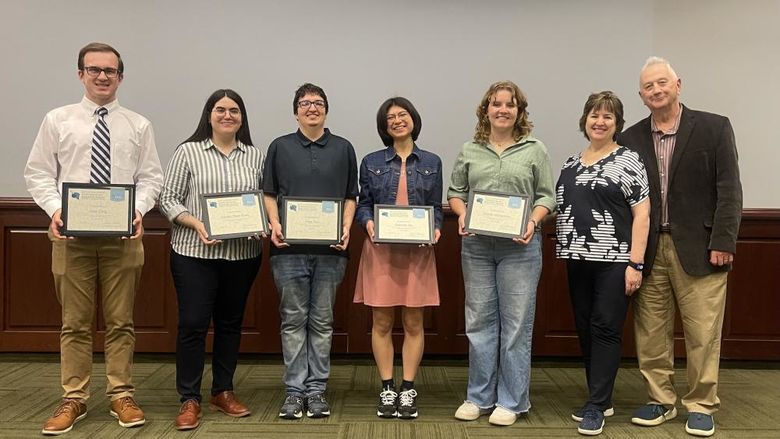
The band La Plazuela performing in Granada, Spain.
UNIVERSITY PARK, Pa. — What started as free tickets to see a flamenco fusion band in Spain turned into an unexpected research opportunity for a team of researchers at Penn State, who discovered a unique example of the power of music to bridge generational divides.
The case study, published online ahead of inclusion in an upcoming issue of the Journal of Intergenerational Relationships, explored the ways that a band in Granada, Spain — La Plazuela — incorporated stories about intergenerational family conversations and relationships into their songs and performances, drawing multi-generational audiences along the way.
“The band’s music shows how creative expression can bring generations together — not just to listen, but to connect, reflect and imagine a future rooted in cultural pride and mutual respect,” said Matthew Kaplan, paper author and professor of intergenerational programs and aging in the College of Agricultural Sciences.
The team’s analysis suggests that music and live performances can open up space for reimagining intergenerational relationships and questioning ageist assumptions, according to Kaplan. He explained that the band’s approach could offer inspiration for communities everywhere looking to strengthen social bonds across generations and honor shared heritage.
“Through their music and media presence, La Plazuela encourages younger generations to appreciate how older adults enrich their lives and contribute to their personal growth,” he said. “By blending tradition with innovation, the band not only bridges generational gaps but also demonstrates the universal power of music to create shared experiences across time and place.”
A musical, multi-generational inspiration
Kaplan was on sabbatical in Spain when a friend offered him a few free tickets to see La Plazuela, who describe their style as “electronic-flamenco-funk fusion” — a blend of music rooted in traditional culture and the contemporary music scene.
“We went just to relax and have fun, but right away, I noticed that the audience looked a little different,” Kaplan said. “There were young people but also older people, too. It was very multigenerational. And everyone was swaying and enjoying the music together, they weren’t separating themselves.”
Struck by the experience, Kaplan started to read more about the band. He learned that one of the band member’s grandmother helped the group when they were just starting out, letting them practice in an outdoor section of her home known as a plazuela. And now, many of the band’s performances start with a recording of an interview with the same grandmother.
Inspired by the band’s familial values and multigenerational audience, an idea for a possible research project started to take root. Kaplan reached out to A. Patricia Aguilera-Hermida, an associate teaching professor of human development and family studies at Penn State Harrisburg, who was also intrigued.
After learning more about the band, Aguilera-Hermida said, she noticed they frequently included older adults in their songs and interviews. For example, one song talked about the band coming home so late that they were caught by their very early rising grandmother.
“There was this theme of integrating other ages and generations into the conversation that I think is the transformative piece of it,” she said. “They weren’t explicitly talking about building connections between generations or trying to educate people, it was a natural inclusion of older adults in a way that was beautiful.”
Infusing music with an intergenerational spin
One of the reasons the researchers were so struck by the band’s intergenerational approach, they said, is because of how pervasive ageism is in society today.
In their university courses and applied research work, Aguilera-Hermida and Kaplan point to ageism as one of the most significant barriers to fostering positive intergenerational relationships. Ageism often involves dismissive or patronizing attitudes toward older and younger people. For older adults, the researchers said, ageism reinforces assumptions about diminished capacity or relevance. The researchers also noted that such stereotypes can be internalized by older adults, negatively impacting their self-esteem and overall well-being.
Furthermore, many of these stereotypes can be absorbed without people noticing it, Aguilera-Hermida said, making them especially difficult to recognize and push back on.
“The problem with ageism is that many people don’t see it,” she said. “And if you don’t see it, then it’s very difficult to talk about and very difficult to challenge. But it’s important because ageism is the only stereotype that will affect all of us at some point, if we’re lucky enough to reach older age.”
Interested in La Plazuela as a case study for how music can help counteract these stereotypes, the researchers continued their deep dive into the band. They pored over archival footage of the group — analyzing lyrics, interviews and performances through the lens of how they apply to previous research on ageism and human development.
And, they said, they were pleased with what they found.
Using music to bring generations together
One of the first things the researchers noticed about La Plazuela was the diverse audience they attract to their concerts: parents and grandparents of the band members along with fans of all ages. The researchers said this mingling of the generations demonstrates the key concept of synchronicity.
A previous study by other researchers reported that synchrony — two or more people engaging in a matching, rhythmic behavior like dancing — can help people bond and make them feel closer. Another study revealed that an activity as simple as walking together with a person of an out-group — for example, someone of a different race or age group — can decrease prejudice toward that group. Those researchers specifically noted that music, especially during concerts, naturally creates space for synchronous movement and singing.
Another striking aspect of the band’s performance, the researchers noted, was the recording of an interview between one of the members and his grandmother played at the start of the concert. During the brief recording, the two discuss a shared memory of pressing olives for olive oil in the grandmother’s kitchen.
While the recording may seem like a simple conversation, the researchers said it’s actually more than that: By showcasing this relationship in a casual, warm and humorous way, the band is challenging negative stereotypes about older adults and promoting the beauty of intergenerational relationships.
Beyond their live performances, the band also infuses their songs with memories of older family members. One song recounts a time a band member watched a sunset with his grandfather, while another speaks about lessons learned from the street where the singer grew up.
“The message to younger people is to reconsider negative stereotypes about older adults and instead see the contributions of people of all ages, including older people,” Kaplan said. “These contributions can include passing down family values, instilling pride in cultural heritage and sharing life perspectives.”
The researchers said that by including images and voices of older adults in their media interviews, videos and performances, La Plazuela ultimately succeeded in doing something simple but powerful: promoting positive attitudes toward older adults.
“We found that they’re bringing an intergenerational view to the masses,” Aguilera-Hermida said. “And what they’re doing is linking to this cultural duality — being in the past, but it being in the present. Being old, but being young. Being together. And I think that’s something that is beautifully portrayed by the band.”
Pedro Sánchez Llopis, Geneva Graduate Institute, also co-authored the paper.




